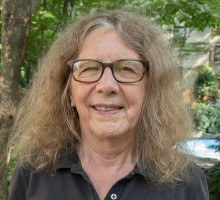
Reviews
In our well-defined world of classicists, medievalists, and early modernists, books like Openness, Secrecy, Authorship have become increasingly rare. Pamela Long, ignoring all those unspoken caveats about periodization has courageously gone where few others dare to go by crafting an argument that extends from antiquity to the Renaissance and beyond.
This thorough and learned book is a significant addition to our knowledge of artisanal culture and writing, the history of authorship, the history of the book, and the history of science. It thus belongs on the bookshelf of scholars in a wide variety of fields.
A historical argument of sweeping scale... In considering the shifting notions of openness and secrecy with respect to technical knowledge, and the varying styles and rewards of technical authorship over many centuries, Long sheds greater light on the fruitful interactions between craft practitioners, learned scholars, and the patrons who supported both... An engaging and detailed history of technical authorship.
Long's book inaugurates a new standard in the ongoing effort to breach field boundaries in pursuit of historical knowledge. It represents a welcome addition to the ongoing discussion and revision of renaissance intellectual history.
Long discusses above all the ways in which practical know-how and discursive traditions of knowledge have interwoven with each other to produce (just over the temporal horizon the seventeenth-century experimental philosophy mentioned in the book's 'Epilogue'.
Through insightful interpretation of her sources, Long demonstrates how written texts can, in fact, provide evidence of secrecy. In the process, she provides a nuanced understanding of the relationship between knowledge, texts, power, and work.
This important study examines the roles and implications for technical fields of what we would now call 'intellectual property,' from antiquity through the Renaissance. Much has been made, and rightly so, about changes in attitudes and access to technological knowledge and innovations during the seventeenth and eighteenth centuries... To identify, examine, and explain such changes over a broad span of time requires extensive, broad investigation and careful source reading. Long demonstrates both in a work that repays careful reading.
A fascinating overview of an enormous variety of writings in technical, craft and practical traditions from antiquity to the early modern period.
Long's book revises several received views of attitudes to secrecy and ownership of craft traditions and it also contributes to the ongoing investigation of the relationship of craft traditions in the emergence of the new philosophy (what came to be known as 'science') in the sixteenth and seventeenth centuries. In both these areas, it provides new information and a new approach. This book will appeal to historians of science and technology, and it is a significant addition to literature in these fields.
Book Details
List of Illustrations
Acknowledgments
Note on Editions and Translations
Introduction. Categories and Key Words: Local Meaning in Long-Term History
Chapter 1. Open Authorship with Ancient Traditions of
List of Illustrations
Acknowledgments
Note on Editions and Translations
Introduction. Categories and Key Words: Local Meaning in Long-Term History
Chapter 1. Open Authorship with Ancient Traditions of Techne and Praxis
Chapter 2. Secrecy and Esoteric Knowledge in Late Antiquity
Chapter 3. Handing Down Craft Knowledge
Chapter 4. Authorship on the Mechanical Arts in the Last Scribal Age
Chapter 5. Secrecy and the Esoteric Traditions of the Renaissance
Chapter 6. Openness and Authorship I: Mining, Metallurgy, and the Military Arts
Chapter 7. Openness and Authorship II: Painting, Architecture, and the Other Arts
Epiloguse. Values of Transmission and the New Sciences
Notes
Bibliography
Index






